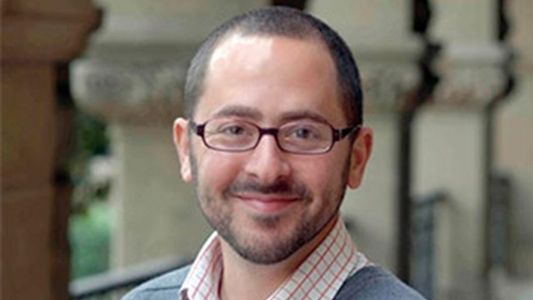Menchik Workshops New Research at the Bush School
On March 31, 2021, Jeremy Menchik, Associate Professor of International Relations at the Frederick S. Pardee School of Global Studies at Boston University, presented a chapter of his book manuscript, The Missionary Impulse in World Politics, to a workshop at the Bush School of Government & Public Service.
The chapter “Christianity, Islam, and Liberalism’s Missionary Ventures” examines the diffusion of missionary practices over the eighteenth and nineteenth centuries, demonstrating deep entanglements between the seemingly distinct ventures of Christianity, Islam, and liberalism.
From the abstract:
How does liberalism travel? What are the tactics that have been used to spread the liberal tradition? What does liberalism do on arrival? At a time of rising authoritarianism and democratic backsliding, understanding the spread of liberalism is of pressing importance to scholars of democracy and comparative political theory alike. This chapter maps liberalism’s global itineraries by focusing on the agents of missionizing and their practices for spreading their respective traditions, including preaching, textual translation, indigenization, dialogue, church-planting, business, personal exegesis of texts, apologetics, military coercion, exogamous marriage, civilizing, cultural appropriation, and the provision of social welfare. Each practice is introduced with conceptual exemplars from missionary ventures in Christianity or Islam, followed by parallel applications by missionary liberals. By doing so, the chapter unearths shared histories and continued entanglements between three traditions that are typically considered distinct and independent. These entanglements raise hard questions about liberalism’s self-proclaimed neutrality in matters of faith. More abstractly, these entanglements raise concerns about scholarly efforts to decolonize political theory.
Jeremy Menchik is Associate Professor in the Frederick S. Pardee School of Global Studies at Boston University and faculty affiliate in Political Science and Religious Studies. His first book, Islam and Democracy in Indonesia: Tolerance without Liberalism (Cambridge University Press, 2016) explains the meaning of tolerance to the world’s largest Islamic organizations and was the co-winner of the 2017 International Studies Association award for the best book on religion and international relations. His work has appeared in the academic journals Comparative Studies in Society and History, Comparative Politics, International Studies Review, Politics and Religion, Asian Studies Review and South East Asia Research as well as in The New York Times, The New York Review of Books, The Washington Post, Christian Science Monitor, The Wall Street Journal, and USA Today. His recent research focuses on social movements, the politics of modern religious authority, and the origins of the missionary impulse.
